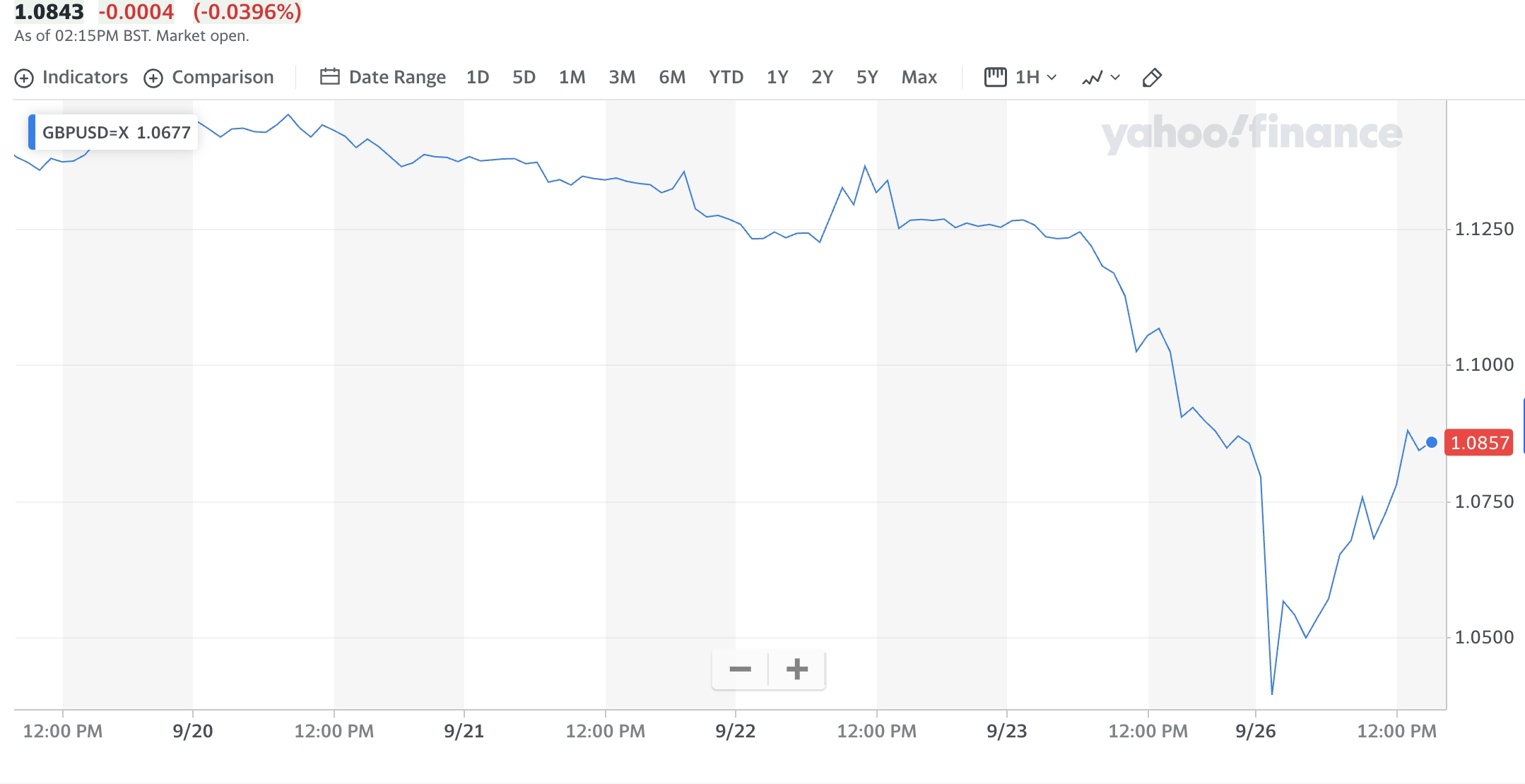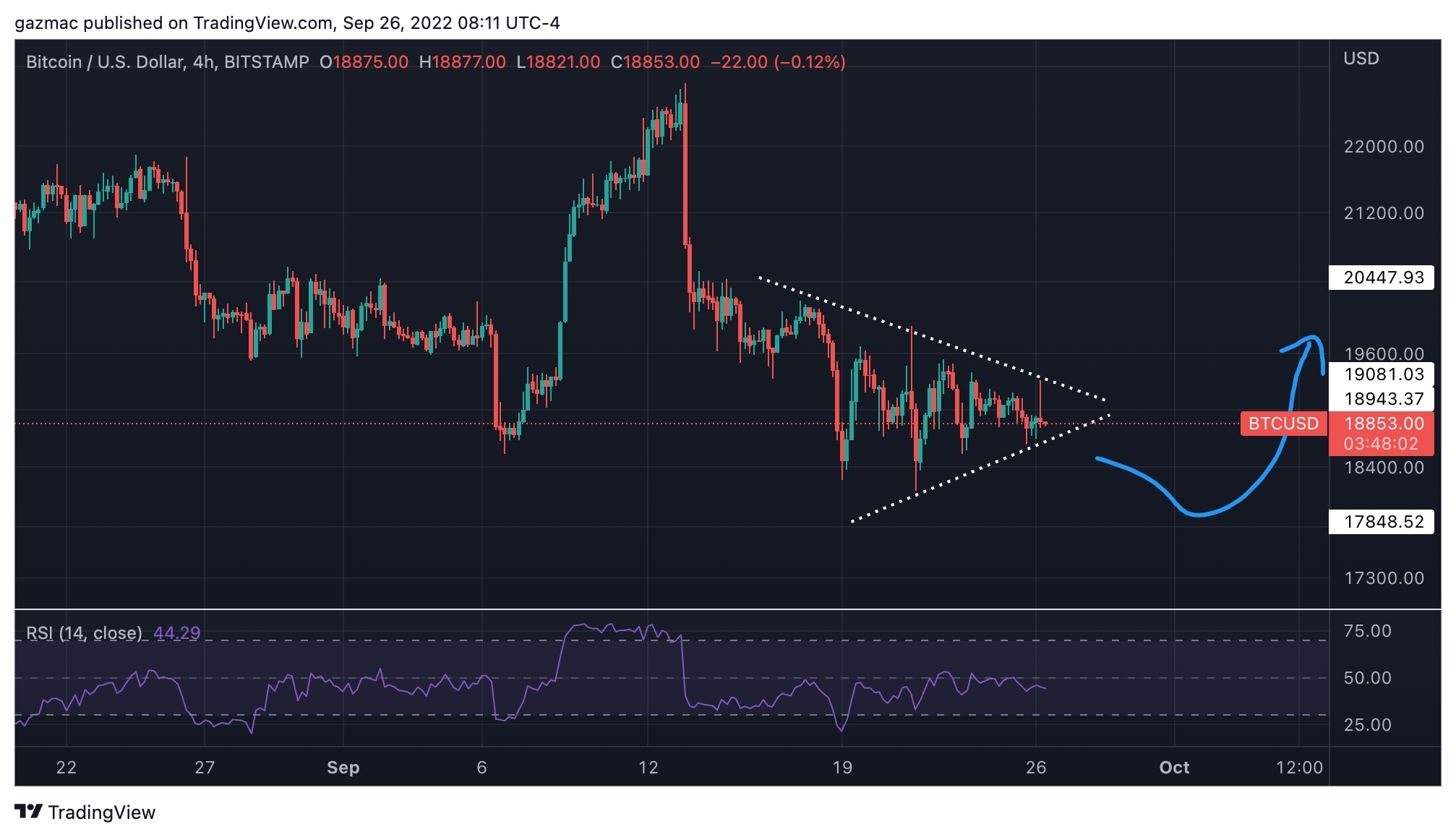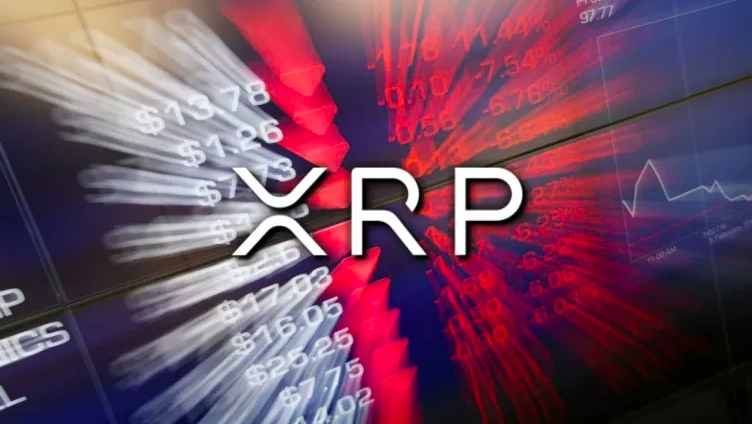
Being long on the bitcoin price is a sounder strategy today than being long on the British Pound as the currency touches historic lows against the US dollar.
Unfortunately for Brits, this is not a trading decision because if you get paid in GBP you are long sterling.
Foreigners are fleeing from British assets. Investors are demanding a high price to fund the gigantic and growing current account deficit of 8% – about a year ago it was 2%.
If you are resident in the UK, there's not much you can do dodge the bullet, apart from asking your employers to pay you in the mighty dollar, which keeps getting stronger, or in bitcoin. Bitcoin? Really! Bear with me.
Crypto prices are being pressured lower but that feels like a sideshow when all asset classes are falling in value.
At the centre of the current turmoil is the UK economy and the British Pound.
Indeed, at times like this, holders of crypto could be forgiven for displaying a little schadenfreude.
Having grown used to batting away uninformed comment about the supposed vacuousness of the digital asset class, it is with a wry smile that the gyrations in stocks, bonds, currencies and commodities are observed.
Markets are starting to feel disorderly.
GBP/USD is at an all time low of 1.0373 and WTI crude benchmark is down 37% since mid June. UK Bond yields (gilts) rocketed and that helped cable (GBP/USD) move back to 1.07.

And the market is pricing in 200 basis points hike from the Bank of England by November as it tries to stem the unfolding collapse of the currency. These are staggering numbers.
Meanwhile, the Bank of England "hasn't decided whether to comment in order to stabilize the market" and calls for an emergency rate hike grow more louder and more insistent.
With central bankers forced into a corner, as they attempt to square the circle of controlling inflation through interest rate hikes without tipping the global economy into recession.
Indeed some economies are already in a recession.
Undoubtedly there is a growing sense of economic crisis, with a fractured political landscape in many countries not exactly helping to calm nerves.
Comparing crypto prices and the valuation of the pound, bitcoin influencer and long-time supporter Dan Held provided a timely reminder, given the Bank of England governor Andrew Bailey's past remarks on bitcoin and associated matters:
The latest chapter in the slide downwards into recession feels like an inflection point as the world economy flips from bond price bubble (low interest rates) to bond yield explosion. Global bonds are having their worst year since 1949.
It looks increasingly like the Fed and other central banks are tightening into a recession because, as they see it, there is no other choice if inflation is to be tamed.
That means that all the eps forecasts for next year are out of whack – economic activity is starting to slow – certainly that's the case in the UK and the rest of Europe and soon too in the US also.
As Tom Keene put it on Bloomberg Surveillance this morning: “This is just not about the soap opera known as the United Kingdom.
Which brings us to the bellwether of the crypto price complex – bitcoin.
Bitcoin is down 1.2% as it struggles to hold above the near-term low around $18,700.
Still, that is as nothing set alongside the historic moves that are taking place in FX and fixed income (bonds).
Jordan Rochester, FX strategist at Nomura, has some very gloomy – and realistic – predictions for the UK market, remarking, with a nod to the country’s policymakers, that “hope is not a strategy”.
He thinks GBP will be below parity with the dollar by Q1 next year at 0.95.
The greater the distress in non-crypto asset classes the greater becomes the attractiveness of crypto.
That may seem a bold, if not reckless statement, given the ongoing crypto winter.

However, crypto has a few things going for it that, for example, the British pound doesn’t.
The chance of bitcoin bottoming and starting to recover are higher than GBP at this juncture, which makes the current convergence of factors a buying opportunity:
Bitcoin doesn’t have much further to fall – the same cannot be said for stocks and bonds.
Bitcoin still holds out the prospect of being a safe haven from inflation if and when its correlation with stocks is broken.
Which begs the question, what will it take to decouple crypto from stocks?
The answer depends on capitulation – will that fateful day come first in crypto or stocks?
It may come sooner in crypto, with equities not likely to see capitulation (where buyers sell off and exit the market) until the second half of next year. In a contrarian way, that's a good thing for medium to long term holder of bitcoin, Ethereum and other crypto.
You might even want to consider to holding one of the new breed of coins in the crypto gaming sector such as Tamadoge that lists on OKX tomorrow.
Finally, even if you are not at the eye of the storm in the UK, what happens there can provide clues as to how the fissures in the global economy could widen into chasms – and show why holding some crypto could be the smart move.



Copyright © 2021-2025 AssessCrypto All rights reserved.